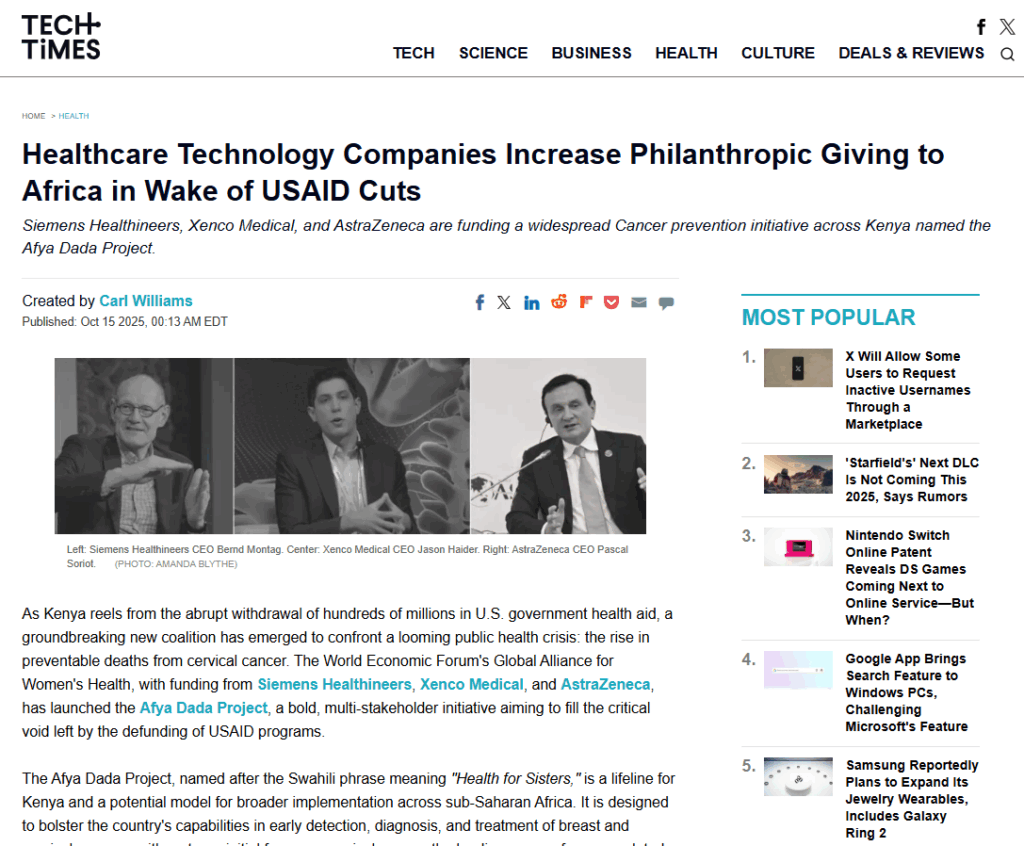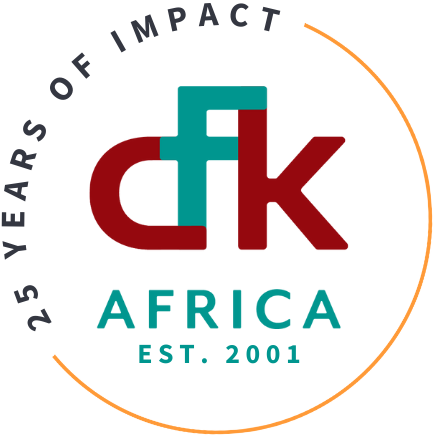As Kenya reels from the abrupt withdrawal of hundreds of millions in U.S. government health aid, a groundbreaking new coalition has emerged to confront a looming public health crisis: the rise in preventable deaths from cervical cancer. The World Economic Forum’s Global Alliance for Women’s Health, with funding from Siemens Healthineers, Xenco Medical, and AstraZeneca, has launched the Afya Dada Project, a bold, multi-stakeholder initiative aiming to fill the critical void left by the defunding of USAID programs.
The Afya Dada Project, named after the Swahili phrase meaning “Health for Sisters,” is a lifeline for Kenya and a potential model for broader implementation across sub-Saharan Africa. It is designed to bolster the country’s capabilities in early detection, diagnosis, and treatment of breast and cervical cancers, with a strong initial focus on cervical cancer, the leading cause of cancer-related deaths among Kenyan women.
A Vacuum of Vital Support
The urgency behind the coalition is driven by a health catastrophe in the making. For decades, Kenya’s cervical cancer prevention infrastructure relied heavily on funding from the U.S. government through USAID, PEPFAR, and CDC. This foreign assistance supported everything from HPV vaccinations and cervical screenings to workforce training and HIV-integrated cancer programs.
However, the U.S. government’s recent funding freeze slashed over $240 million USD annually from Kenya’s health programs, about a quarter of its Ministry of Health budget. Particularly devastating was the $3.3 million annual loss in cervical cancer screening and treatment funds, which jeopardized the employment of over 40,000 healthcare workers and disrupted programs that screened more than 345,000 women annually. According to a paper recently published by the Institute for African Studies, the recent withdrawals of Western governmental aid to Africa “threaten to inflict severe humanitarian consequences, particularly upon Africa’s most marginalised populations.”
Communities like Kibera, one of Nairobi’s largest informal settlements, are bearing the brunt of this crisis. “Today, there is a pervasive sense of fear, of losing access to critical health care services and of livelihoods lost. Even programs that were not directly supported by USAID have been affected as it disrupted the supply chain of medications in Kenya,” said Jeffrey Okoro, Executive Director of CFK Africa.
Read the full article on Tech Times.

